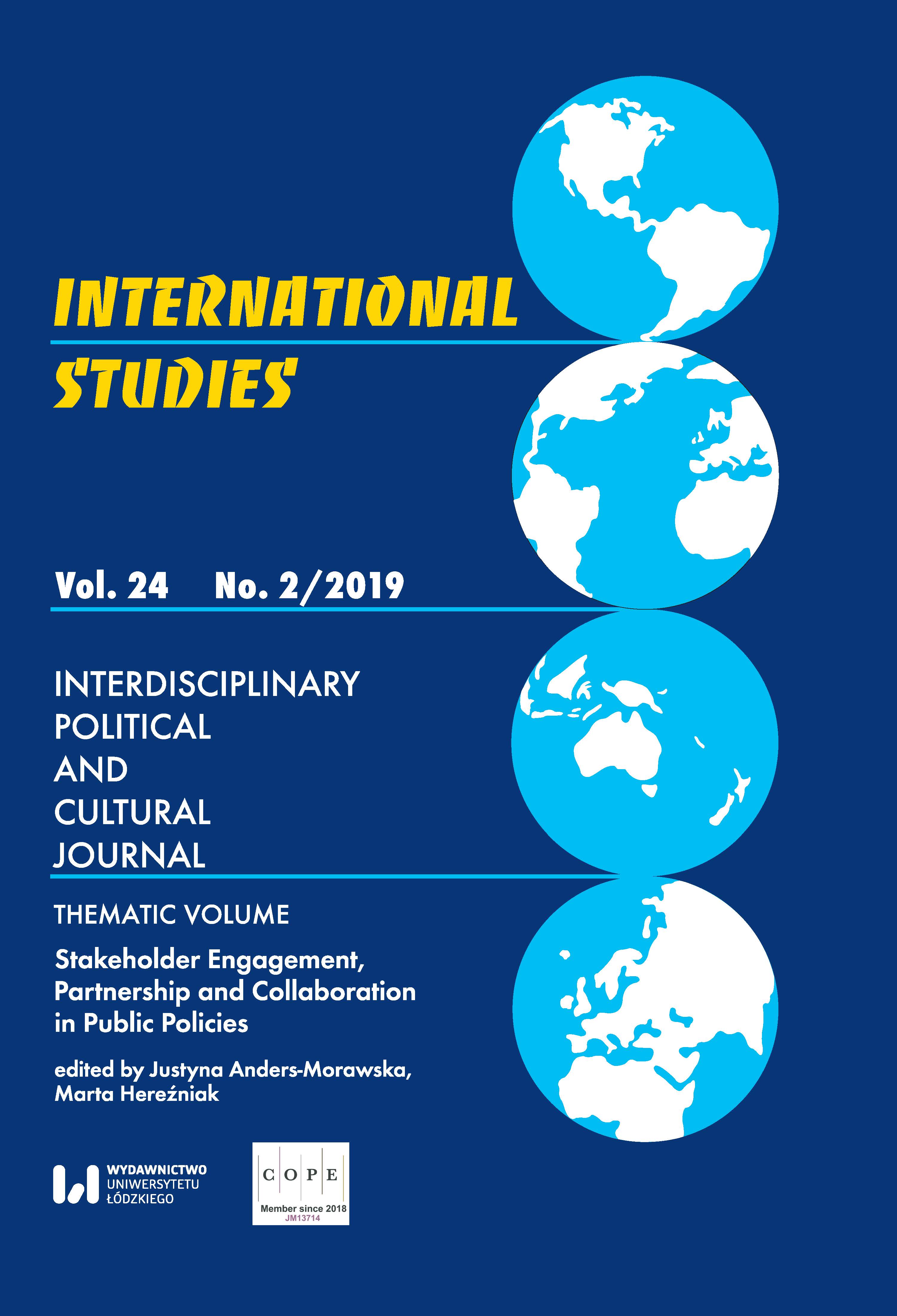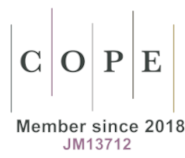Re-branding Colombia through Urban Transformation and Rural Regional Marketing
DOI:
https://doi.org/10.18778/1641-4233.24.06Słowa kluczowe:
urban transformation, cultural service ecosystem, Medellín, rebrandingAbstrakt
Colombia is now projecting a new, positive image to the world after overcoming a past characterised by politically inspired guerrilla warfare and violent conflict with narco-trafficking cartels which had ravaged the country for decades. Even before the country’s transformation, other intermediate place institutions – cities and regions – had already taken significant steps towards territorial change and marketing. This paper outlines the processes involved in urban and social transformation in the city of Medellín and in the marketing of the coffee region, as illustrative cases of city re-branding and regional branding, respectively.
Pobrania
Bibliografia
Anholt, S. “Foreword to Special Issue of Brand Management.” Place Branding 9 (2002): 238–249.
Zobacz w Google Scholar
DOI: https://doi.org/10.1057/palgrave.bm.2540074
Anholt, S. “Nation Branding: A Continuing Theme.” Journal of Brand Management 10.1 (2002): 59.
Zobacz w Google Scholar
DOI: https://doi.org/10.1057/palgrave.bm.2540101
Arias, S. “El Festival de Poesía de Medellín, premio «Aula de las metáforas»”, La Nueva España 28 Jun 2013, city of Oviedo newspaper, Spain. Retrieved http://www.lne.es/centro/2013/06/28/festival-poesia-medellin-premio-aula/1434487.html
Zobacz w Google Scholar
Askegaard, S., and D. Kjeldgaard. “Here, There, and Everywhere: Place Branding and Gastronomical Globalization in a Macromarketing Perspective.” Journal of Macromarketing 27.2 (2007): 138–147.
Zobacz w Google Scholar
DOI: https://doi.org/10.1177/0276146707300068
Berg, P. O., and G. Sevón. „Food-branding Places – A Sensory Perspective.” Place Branding and Public Diplomacy 10.4 (2014): 289–304.
Zobacz w Google Scholar
DOI: https://doi.org/10.1057/pb.2014.29
Bessière, J. “Local Development and Heritage: Traditional Food and Cuisine as Tourist Attractions in Rural Areas.” Sociologia Ruralis 38.1 (1998): 21–34.
Zobacz w Google Scholar
DOI: https://doi.org/10.1111/1467-9523.00061
Castells, M. The Rise of the Network Society. Oxford: John Wiley and Sons, 2011.
Zobacz w Google Scholar
Croce, E., and G. Perri. Food and Wine Tourism: Integrating Food, Travel and Territory. Wallingford: CABI, 2010.
Zobacz w Google Scholar
Deshpandé, R. “Why You Aren’t Buying Venezuelan Chocolate.” Harvard Business Review 88.12 (2010): 25–27.
Zobacz w Google Scholar
Drummond, H., et al. “Medellin: A City Reborn?” FOCUS on Geography 55.4 (2012): 146–154.
Zobacz w Google Scholar
DOI: https://doi.org/10.1111/foge.12005
Florek, M. “No Place like Home: Perspectives on Place Attachment and Impacts on City Management.” Journal of Town & City Management 1.4 (2011): 346–354.
Zobacz w Google Scholar
Gertner, D., and P. Kotler. “How Can a Place Correct a Negative iImage?” Place Branding 1.1 (2004): 50–57.
Zobacz w Google Scholar
DOI: https://doi.org/10.1057/palgrave.pb.5990004
Govers, R. “Why Place Branding Is not about Logos and Slogans.” Place Branding and Public Diplomacy 9.2. (2013): 71–75.
Zobacz w Google Scholar
DOI: https://doi.org/10.1057/pb.2013.11
Gummesson, E. “From One-to-One to Many-to-Many Marketing.” Proceedings from QUIS 9. Karlstad. Eds. B. Edvardsson, et al. Sweden: Karlstad University, 2004.
Zobacz w Google Scholar
Gyimóthy, S. “The Reinvention of Terroir in Danish Food Place Promotion.” European Planning Studies, 25.7 (2017): 1200–1216.
Zobacz w Google Scholar
DOI: https://doi.org/10.1080/09654313.2017.1281229
Houghton, J. P., and A. Stevens. “City Branding and Stakeholder Engagement.” City Branding: Theory and Cases. Ed. K. Dinnie. Basingstoke: Palgrave Macmillan, 2010, pp. 45–53.
Zobacz w Google Scholar
Kavaratzis, M., and M. J. Hatch. “The Dynamics of Place Brands: An Identity-based Approach to Place Branding Theory.” Marketing Theory 13.1 (2013): 69–86.
Zobacz w Google Scholar
DOI: https://doi.org/10.1177/1470593112467268
Kavaratzis, M., et al., eds. Rethinking Place Branding: Comprehensive Brand Development for Cities and Regions. Heidelberg: Springer, 2014.
Zobacz w Google Scholar
Khanna, P. Connectography: Mapping the Future of Global Civilisation. New York: Random House, 2016.
Zobacz w Google Scholar
Kjeldgaard, D., and J. Ostberg. “Coffee Grounds and the Global Cup: Glocal Consumer Culture in Scandinavia.” Consumption, Markets and Culture 10.2 (2007): 175–185.
Zobacz w Google Scholar
DOI: https://doi.org/10.1080/10253860701256281
Kotler, P., and D. Gertner. “Country as Brand, Product, and Beyond: A Place Marketing and Brand Management Perspective.” Journal of Brand Management 9.4/5 (2003): 49–61.
Zobacz w Google Scholar
DOI: https://doi.org/10.1057/palgrave.bm.2540076
Londoño, M. D. P. L., and F. X. Medina. “Effects of Cultural and Tourism Policies on Local Development: The Case of Food Trails in Medellín, Colombia.” Almatourism-Journal of Tourism, Culture and Territorial Development 8.7 (2017): 89–106.
Zobacz w Google Scholar
Lucarelli, A. “Co-branding Public Place Brands: Towards an Alternative Approach to Place Branding. Place Branding and Public Diplomacy 14.4 (2018): 260–271.
Zobacz w Google Scholar
DOI: https://doi.org/10.1057/s41254-017-0085-3
Lusch, R. F., and S. L. Vargo. Service Dominant Logic; Premises, Perspectives, Possibilities, Cambridge: Cambridge University Press, 2014.
Zobacz w Google Scholar
DOI: https://doi.org/10.1017/CBO9781139043120
Manetto, F. “Medellín, de capital de la cocaína a centro americano de las letras; La Fiesta del Libro y la Cultura se convierte en un símbolo de superación de la ciudad.” El País 19 Sep 2017, newspaper, Madrid, Spain. Retrieved https://elpais.com/cultura/2017/09/18/actualidad/1505720817_997583.html
Zobacz w Google Scholar
“Medellín, Colombia conferred Lee Kuan Yew World City Prize 2016” Retrieved https://www.nas.gov.sg/archivesonline/data/pdfdoc/20160316004/URA%20pr16–16(LKYWCP2016).pdf
Zobacz w Google Scholar
McShane, N. “Urban Renewal with Innovative Architecture and Design”, The New York Times on-line 21 Dec 2015. Retrieved http://www.nytimes.com/interactive/2015/01/11/travel/52-places-to-go-in-2015.html?_r=2
Zobacz w Google Scholar
Muñiz-Martínez, N. “Towards a Network Place Branding through Multiple stakeholders and Based on Cultural Identities – the Case of ‘The Coffee Cultural Landscape’ in Colombia.” Journal of Place Management and Development 9.1 (2016): 73–90.
Zobacz w Google Scholar
DOI: https://doi.org/10.1108/JPMD-11-2015-0052
Rinaldi, C. “Food and Gastronomy for Sustainable Place Development: a Multidisciplinary Analysis of Different Theoretical Approaches.” Sustainability 9.10 (2017): 1748.
Zobacz w Google Scholar
DOI: https://doi.org/10.3390/su9101748
Sims, R. “Food, Place and Authenticity: Local Food and the Sustainable Tourism Experience.” Journal of Sustainable Tourism 17.3 (2009): 321–336.
Zobacz w Google Scholar
DOI: https://doi.org/10.1080/09669580802359293
Stubbs, J. and G. Warnaby. “Rethinking Place Branding from a Practice Perspective: Working with Stakeholders.” Rethinking Place Branding: Comprehensive Brand Development for Cities ad Regions. Eds. M. Kavaratzis, et al. Heidelberg: Springer, 2015, pp. 101–118.
Zobacz w Google Scholar
Pobrania
Opublikowane
Jak cytować
Numer
Dział
Licencja

Utwór dostępny jest na licencji Creative Commons Uznanie autorstwa – Użycie niekomercyjne – Bez utworów zależnych 4.0 Międzynarodowe.

















